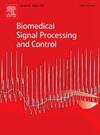BRAIN-SCN-PRO: A machine learning model for the classification of brain tumors using a convolutional neural network architecture
IF 4.9
2区 医学
Q1 ENGINEERING, BIOMEDICAL
引用次数: 0
Abstract
Accurate detection and classification of brain tumors from MRI images are pivotal in IoT healthcare systems, enabling early diagnosis and tailored treatment strategies. Deep learning algorithms, specifically Convolutional Neural Networks (CNNs), have demonstrated significant potential for enhancing the accuracy of Computer-Aided Diagnostic Systems (CADS) for brain tumor identification. This study aimed to develop a CNN-based machine learning model trained on a comprehensive dataset comprising 17,000 T1-weighted contrast-enhanced MRI scans to achieve precise and reliable classification of various brain tumor types. The experimental results demonstrated the remarkable capabilities of the proposed model, with an impressive classification accuracy of 99.37 %. This high level of accuracy suggests that the proposed model has the potential to become a decision support system for radiologists, aiding them in making swift and accurate diagnoses, as well as formulating tailored treatment regimens for patients. This study represents a significant step forward in the realm of IoT healthcare systems, offering a highly accurate and easily accessible solution for brain-tumor classification. The application of BRAIN-SCN-PRO in clinical practice has the potential to revolutionize early detection and management of brain tumors, ultimately improving patient outcomes and quality of life. The model has been made available as an Android mobile application called BRAIN-SCN-PRO on Google Play Store.
(https://play.google.com/store/apps/details?id=com.ap360.brscn).
brain - scn - pro:一个使用卷积神经网络架构进行脑肿瘤分类的机器学习模型
从MRI图像中准确检测和分类脑肿瘤在物联网医疗系统中至关重要,可以实现早期诊断和量身定制的治疗策略。深度学习算法,特别是卷积神经网络(cnn),已经证明了提高计算机辅助诊断系统(CADS)在脑肿瘤识别中的准确性的巨大潜力。本研究旨在开发基于cnn的机器学习模型,该模型在包含17,000个t1加权对比增强MRI扫描的综合数据集上进行训练,以实现各种脑肿瘤类型的精确可靠分类。实验结果证明了该模型的显著性能,分类准确率达到了99.37%。这种高水平的准确性表明,所提出的模型有潜力成为放射科医生的决策支持系统,帮助他们做出快速准确的诊断,并为患者制定量身定制的治疗方案。这项研究代表了物联网医疗系统领域向前迈出的重要一步,为脑肿瘤分类提供了高度准确和易于获取的解决方案。brain - scn - pro在临床实践中的应用有可能彻底改变脑肿瘤的早期发现和管理,最终改善患者的预后和生活质量。该模型已在b谷歌Play Store (https://play.google.com/store/apps/details?id=com.ap360.brscn)上以名为BRAIN-SCN-PRO的安卓手机应用程序的形式提供。
本文章由计算机程序翻译,如有差异,请以英文原文为准。
求助全文
约1分钟内获得全文
求助全文
来源期刊

Biomedical Signal Processing and Control
工程技术-工程:生物医学
CiteScore
9.80
自引率
13.70%
发文量
822
审稿时长
4 months
期刊介绍:
Biomedical Signal Processing and Control aims to provide a cross-disciplinary international forum for the interchange of information on research in the measurement and analysis of signals and images in clinical medicine and the biological sciences. Emphasis is placed on contributions dealing with the practical, applications-led research on the use of methods and devices in clinical diagnosis, patient monitoring and management.
Biomedical Signal Processing and Control reflects the main areas in which these methods are being used and developed at the interface of both engineering and clinical science. The scope of the journal is defined to include relevant review papers, technical notes, short communications and letters. Tutorial papers and special issues will also be published.
 求助内容:
求助内容: 应助结果提醒方式:
应助结果提醒方式:


